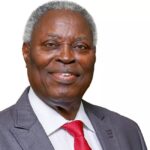
He also urged the Federal Government to make cancer research a priority by capturing the centre’s funding in its 2024 budget.
Aliyu made the appeal on Monday during a media parley and sensitization campaign at its secretariat in Abuja.
“We are calling on the Federal Government to adequately fund the institute in its cancer prevention and treatment research. Conducting research on cancer is like preparing for a war. Otherwise, the war will consume you.
“We also can’t do it alone without the contribution of stakeholders in the health sector. Although we were not captured in the 2023 budget because this institute is new, we are working to get our research funding captured in the 2024 appropriation bill,” the clinical and radiation oncologist stated.
Cancer has been described as the world-leading cause of death and has a higher mortality rate than deaths caused by human immunodeficiency virus, acquired immunodeficiency syndrome, tuberculosis and malaria put together.
The National Cancer Institute reported that cancer is responsible for 72,000 deaths in Nigeria, with fresh cases of 102,000 annually.
Over the years, the data available on cancer mortality has been regarded as inadequate in Nigeria, especially concerning those who present in state, federal, and private health facilities.
A recent study conducted to provide data on the patterns of cancer mortality in Lagos State University Teaching by a team of oncologists showed that 6,592 deaths were recorded over 10 years (2009 to 2018), and 1,133 of those cases were cancer-related.
The researchers deployed data obtained from the hospital’s case notes, admission and death registers, and death certificates to arrive at their conclusion.
Aliyu, however, believed coordination and harmonisation of pockets of cancer incidents and research across the country should be the priority.
The clinical oncologist, who was serving his second term as assistant secretary general of the Nigerian Cancer Society before the NICRAT appointment, argued that the majority of cancer statistics flying around the country are largely exaggerated.
He said, “There is a lot of research going on but no coordination and harmonization. All the statistics on cancer flying around are exaggerated.
“This is why we have a duty to harmonise and coordinate them through proper mapping of human resources, including the specialists on the ground, number of incidents, and verified research conducted so far.”
“When you don’t have adequate information on something, how can you plan well? When you look around, you will discover we don’t even have the statistic to know how many cancer centres we have in the country. How many are functioning? What is the equipment on the ground? ,” he asked.
Aliyu stated, “This is why we are planning to carry out the major task of mapping as the first step.”




